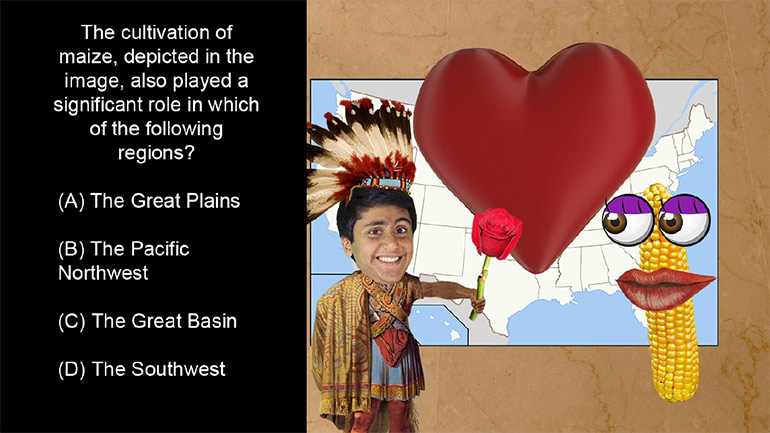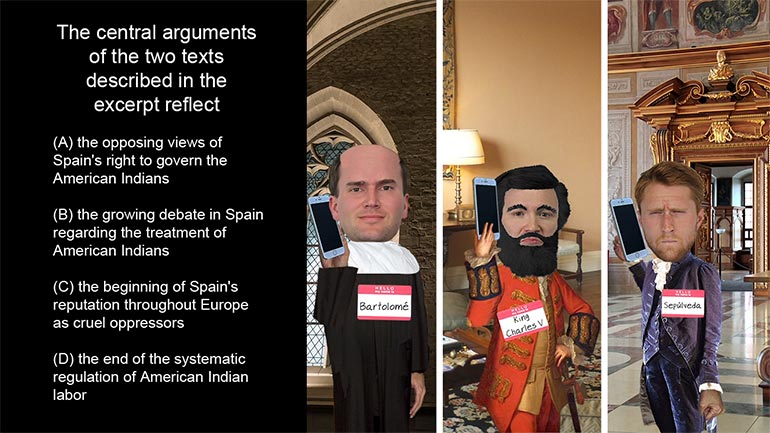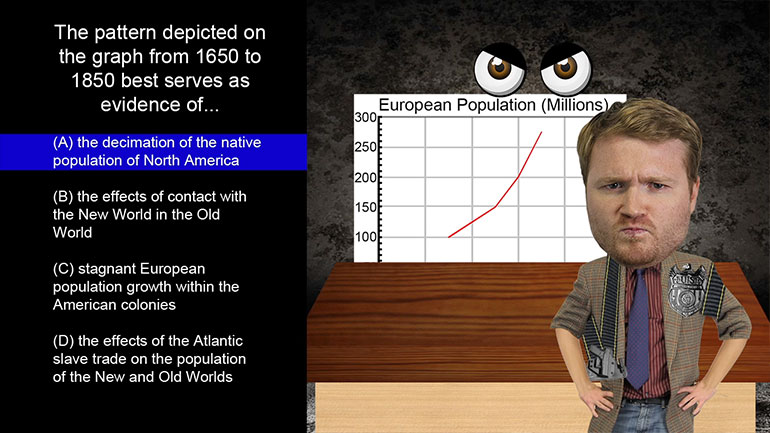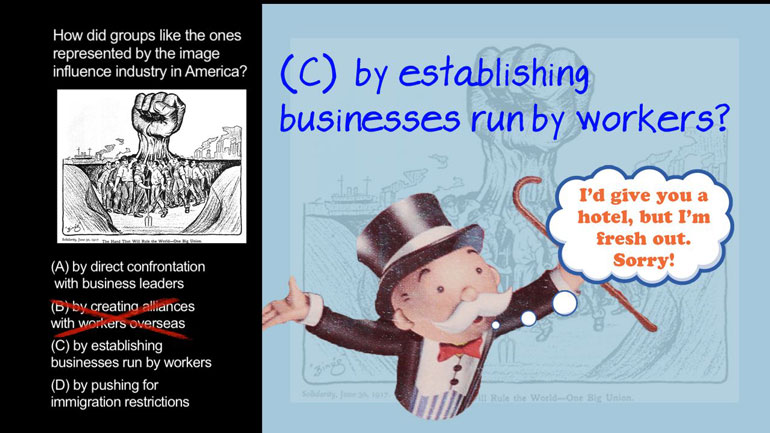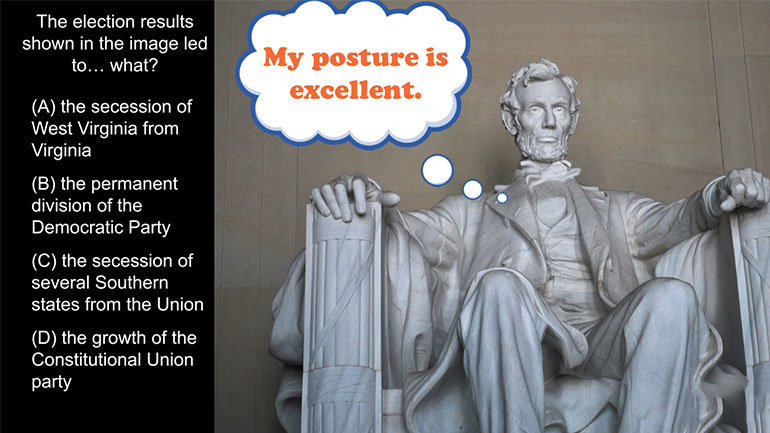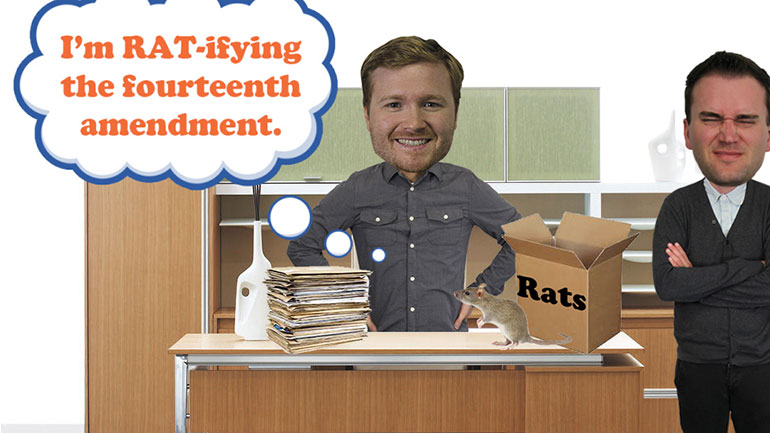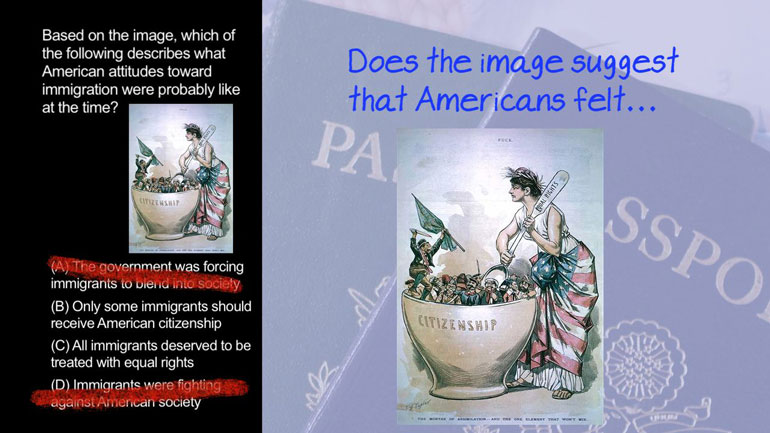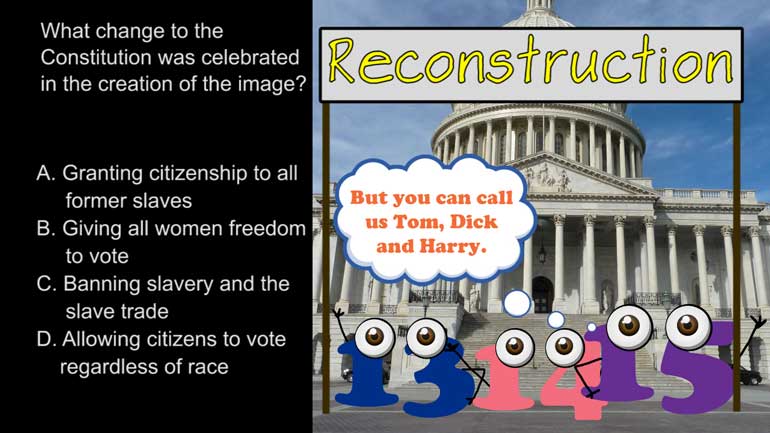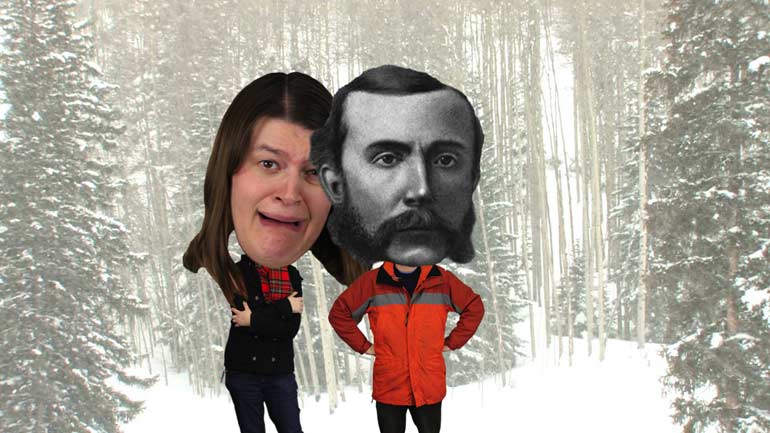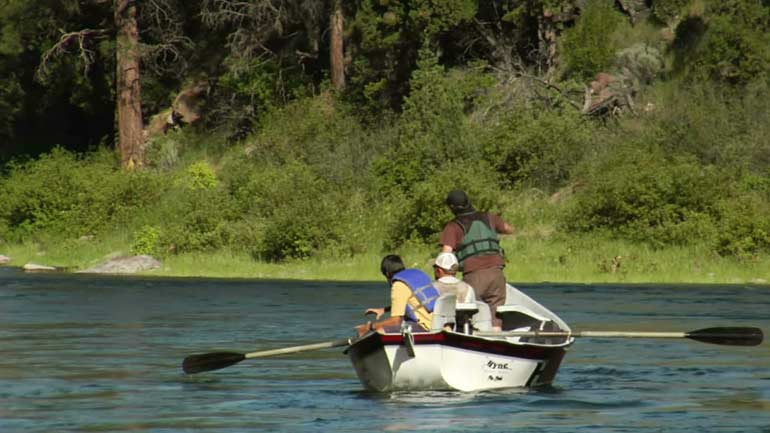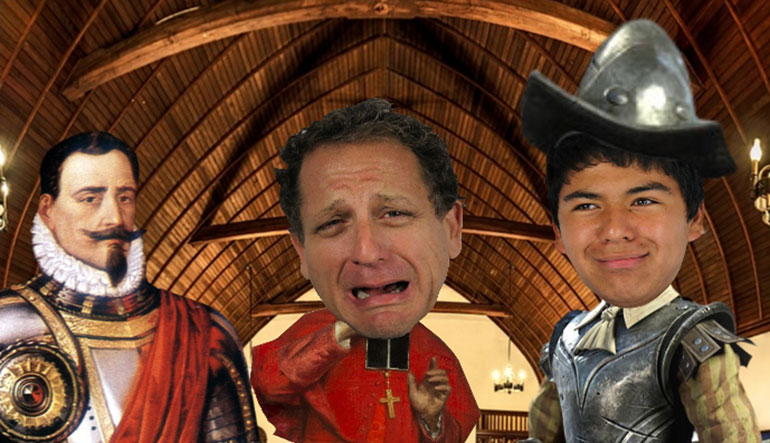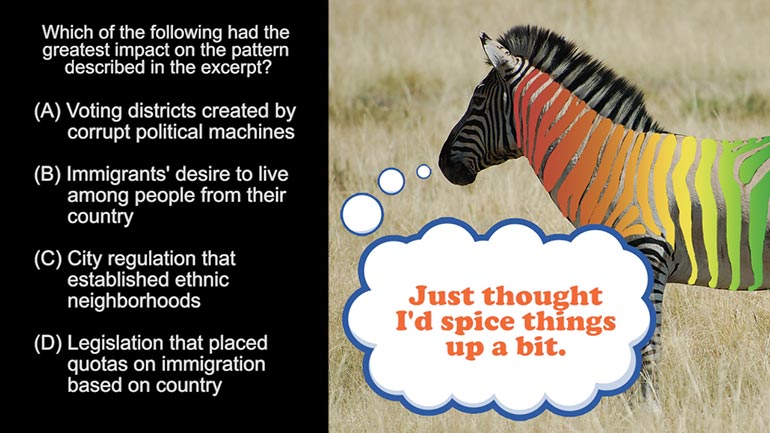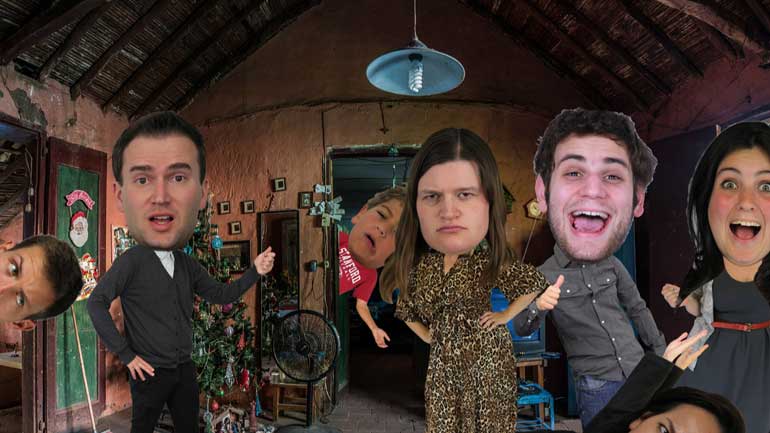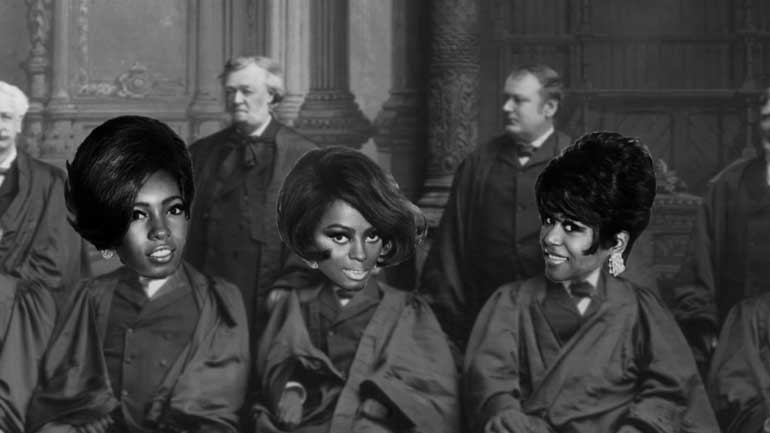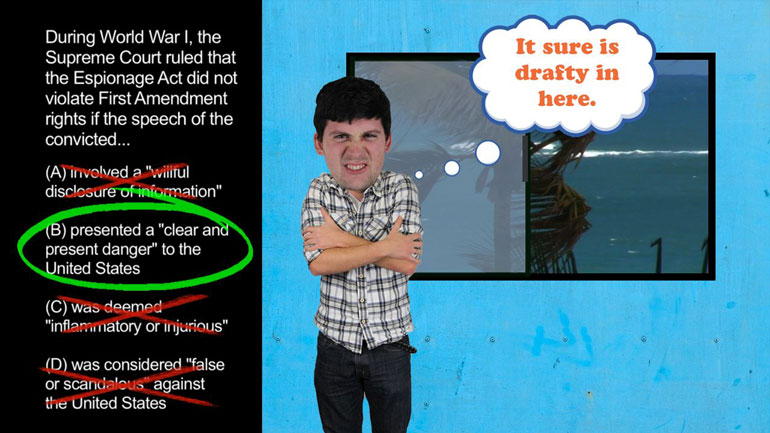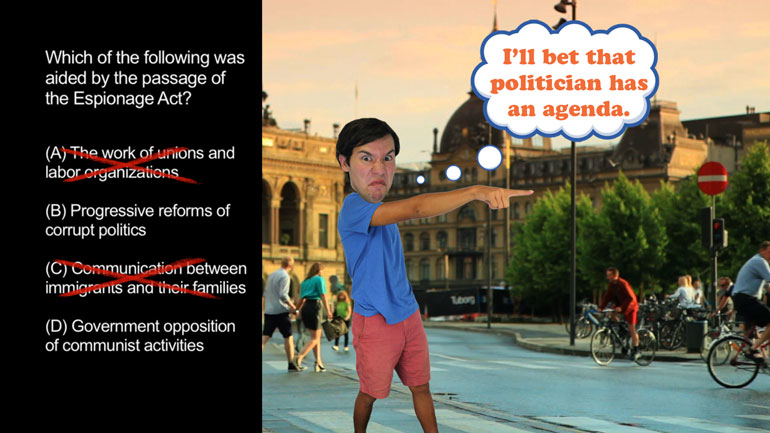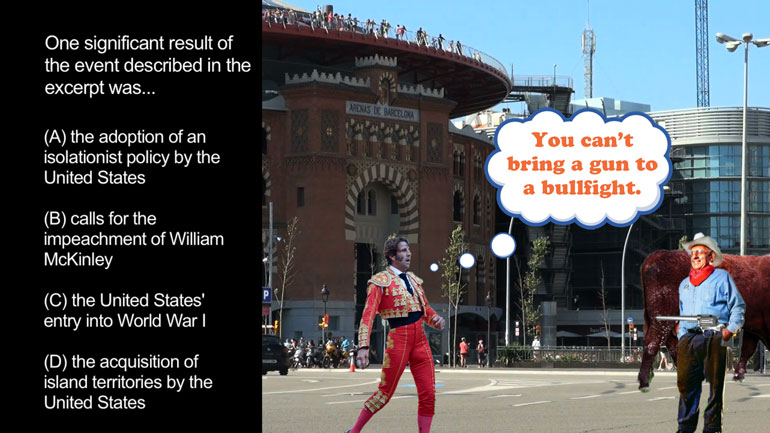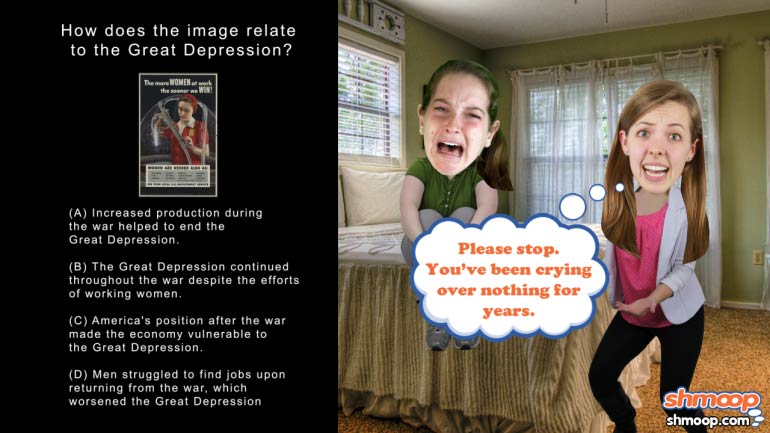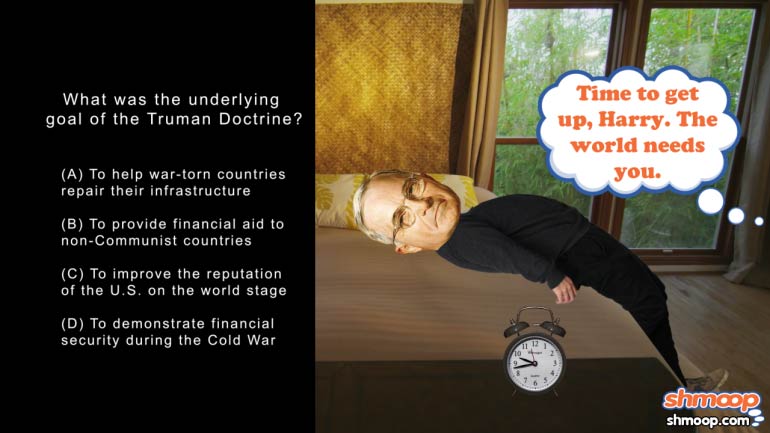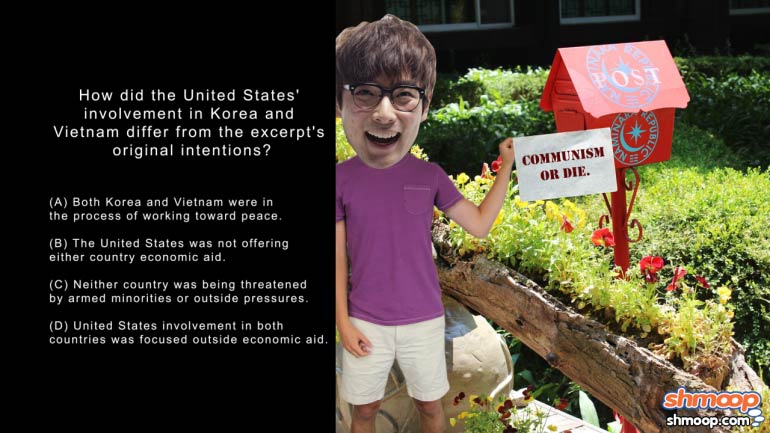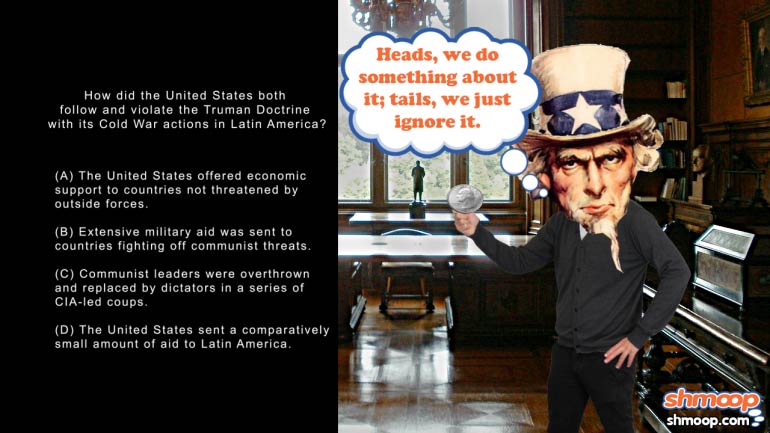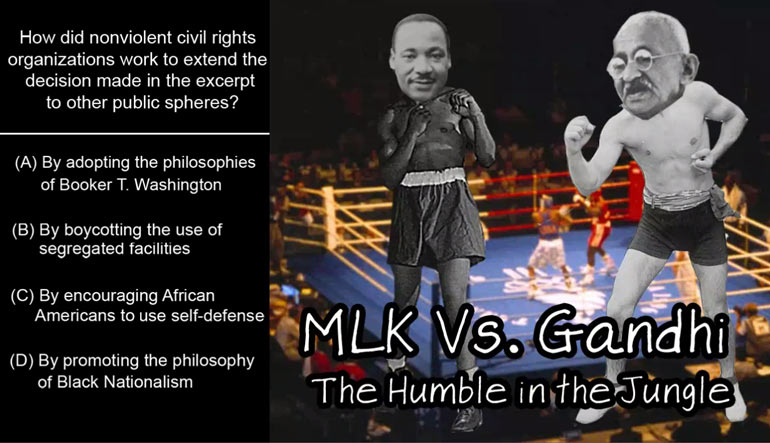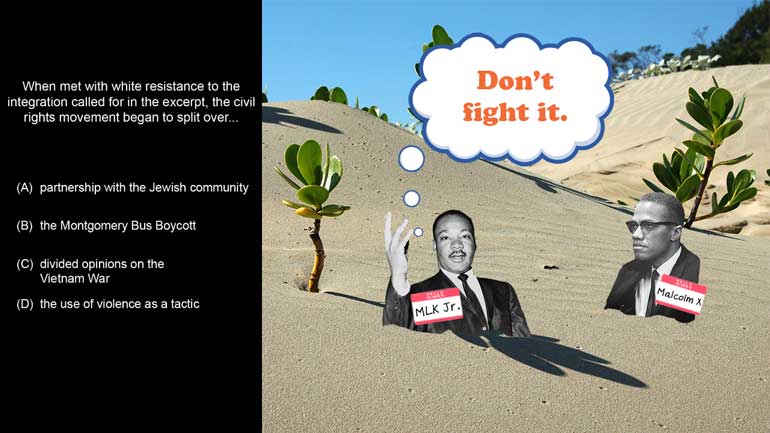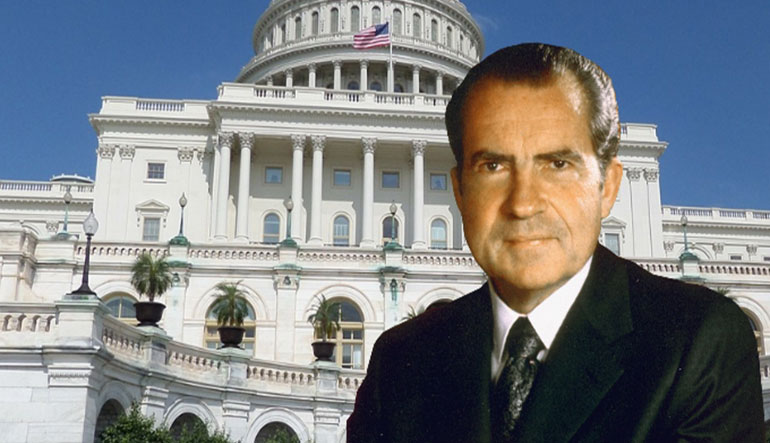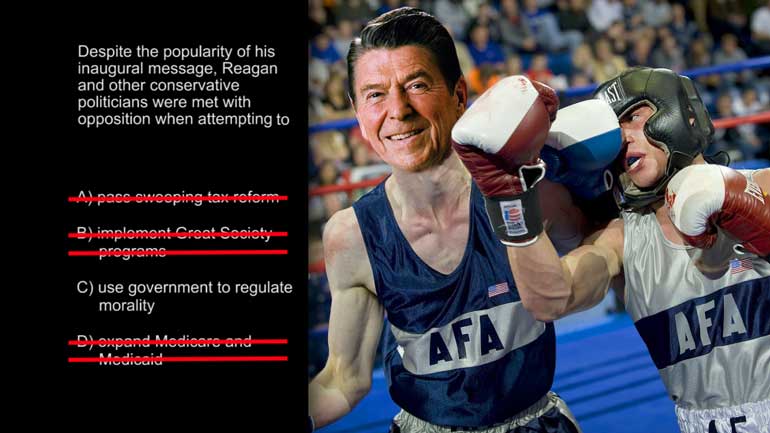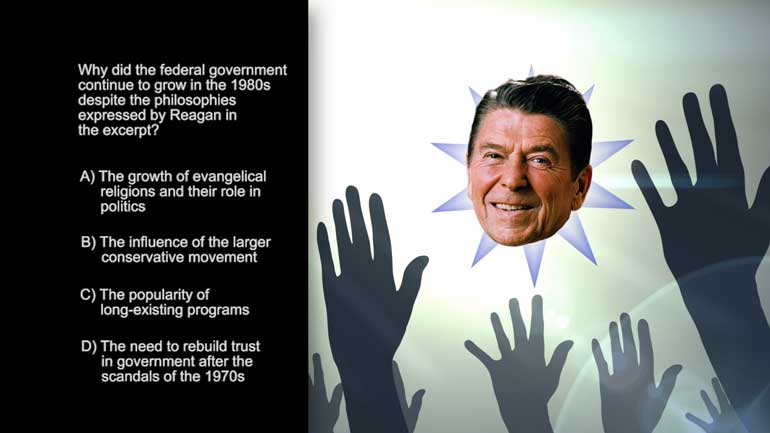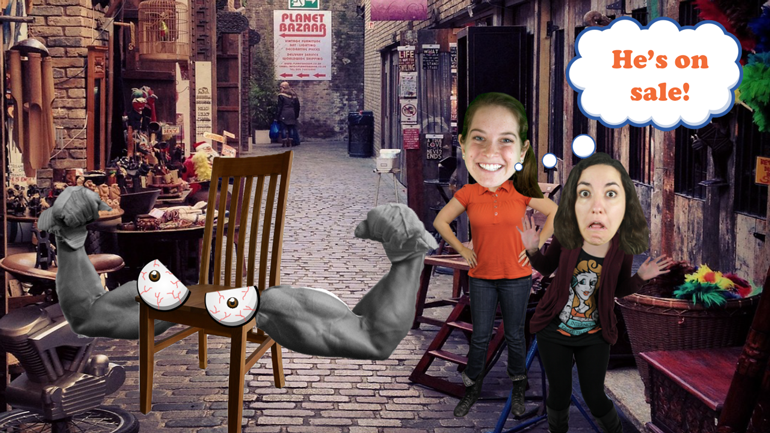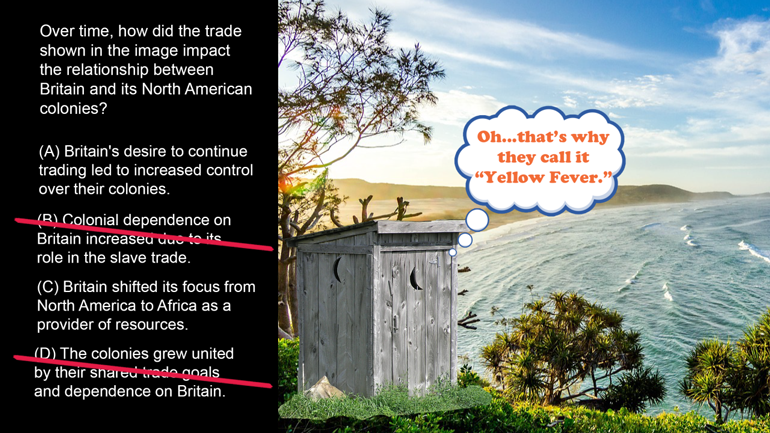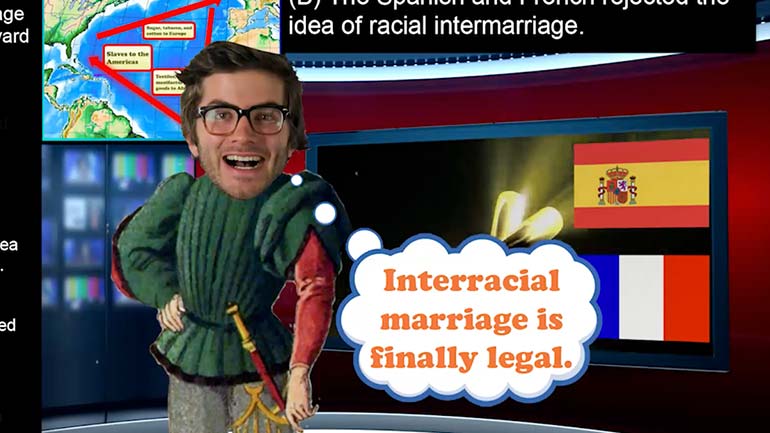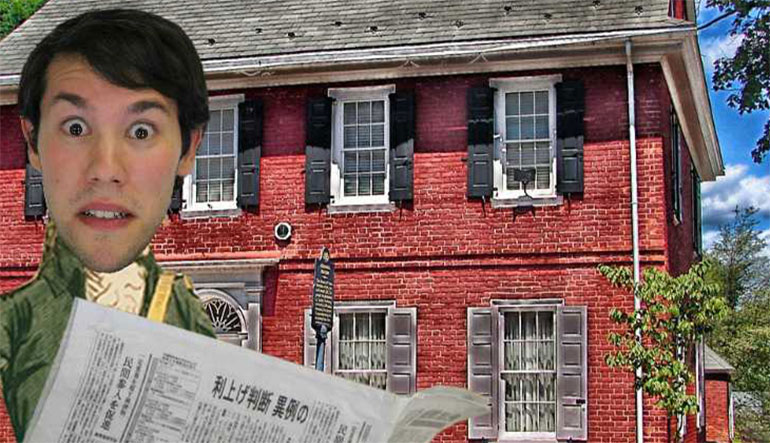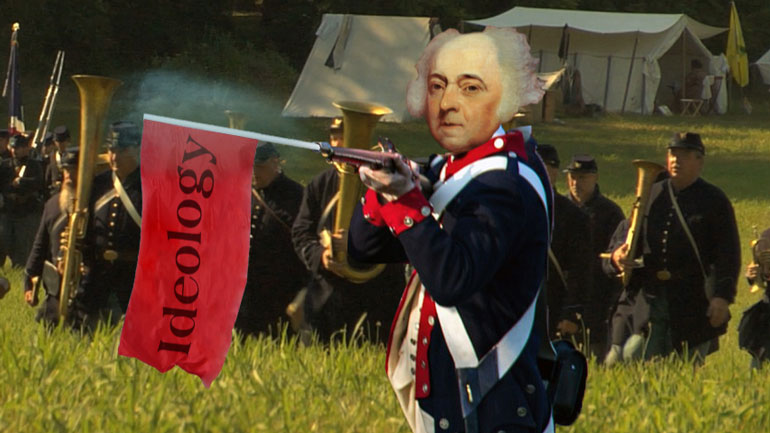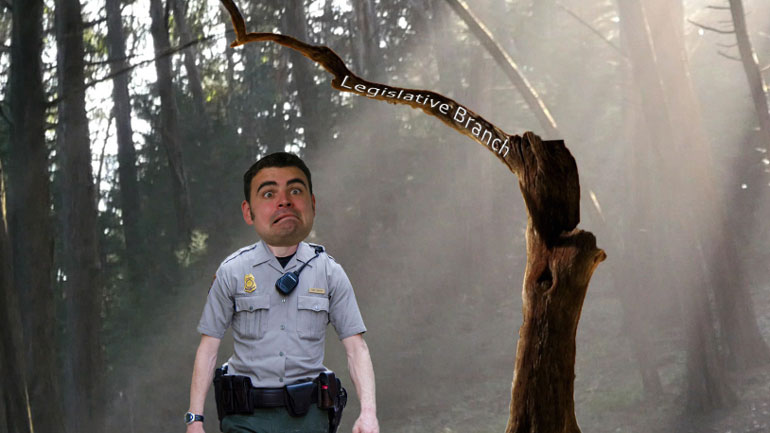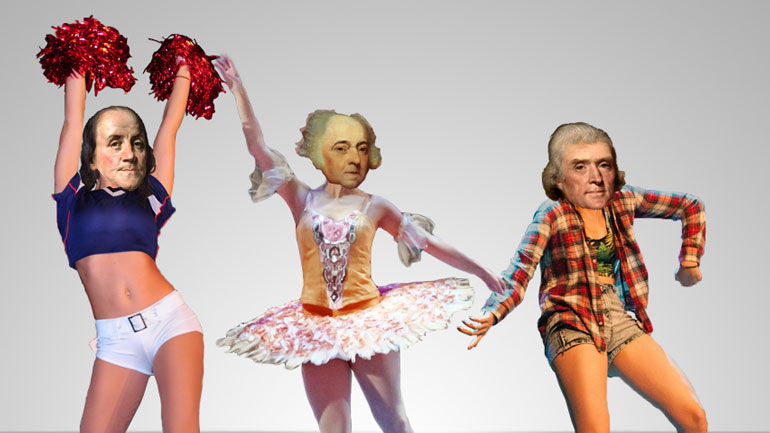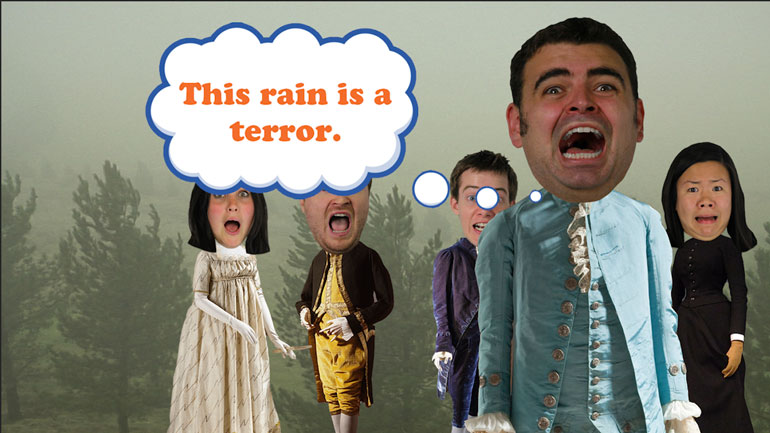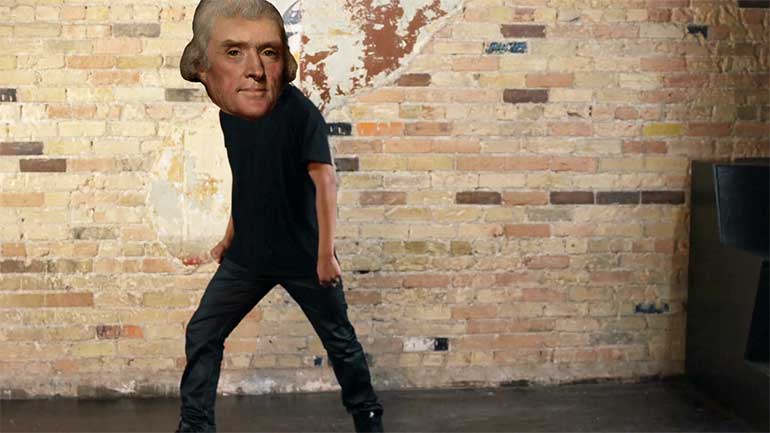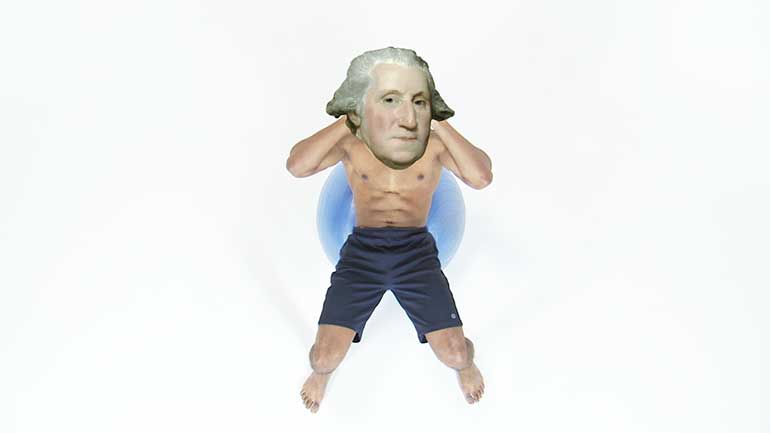ShmoopTube
Where Monty Python meets your 10th grade teacher.
Search Thousands of Shmoop Videos
AP U.S. History Videos 167 videos
AP U.S. History 3.1 Period 2: 1607-1754. Which of the following contributed most directly to the process seen in the image?
AP U.S. History Period 1: 1491-1607 Drill 3, Problem 2. The cultivation of maize, depicted in the image, also played a significant role in which of...
AP U.S. History 3.2 Period 4: 1800-1848. The goals presented in the excerpt have the most in common with which of the following?
AP U.S. History Exam 1.49 172 Views
Share It!
Description:
AP U.S. History Exam 1.49. The excerpt best reflects which of the following political characteristics of the 1960s and '70s?
Transcript
- 00:00
[ musical flourish ]
- 00:02
And here's your Shmoop du jour, brought to you by the Equal Rights Amendment,
- 00:06
the greatest threat to less than signs.
- 00:09
Yeah... Equal rights... Uh, nevermind.
- 00:11
All right, check out this excerpt.
Full Transcript
- 00:13
[ mumbles ]
- 00:20
And the question:
- 00:22
The excerpt best reflects which of the following
- 00:24
political characteristics of the 1960s and '70s?
- 00:28
And here are your potential answers.
- 00:30
There oughta be one on, like, bare feet. Or optional shaving or something.
- 00:34
Well, maybe not.
- 00:35
All right, well, here we go.
- 00:37
The 1960s and '70s tend to elicit visions of
- 00:40
hippies and flower power, but there were some serious
- 00:43
debates blossoming in the courts
- 00:44
and Congress during those decades.
- 00:47
Let's see how the Equal Rights Amendment impacted
- 00:49
the sum total of these movements for social change.
- 00:52
In terms of the political landscape, does the excerpt
- 00:55
reflect an A -
- 00:56
shifted focus to foreign policy over domestic affairs?
- 01:01
Hmm. Well, this excerpt is talking about the Equal Rights Amendment,
- 01:05
a domestic issue before Congress
- 01:07
arguing that "existing laws are not adequate
- 01:10
to secure equal rights for women."
- 01:12
So that eliminates A and C.
- 01:14
Was a political characteristic of the 1960s and '70s B -
- 01:18
conservative defense of traditional values?
- 01:21
Well, actually, the conservative social movement didn't take hold
- 01:24
'til the 1980s and '90s,
- 01:26
bringing with it some pretty traditional ideas.
- 01:28
Thank you, Ronald Reagan.
- 01:30
That bans B, as well.
- 01:32
Which means the political characteristic of the '60s and '70s
- 01:35
best reflected in the excerpt is D -
- 01:37
the use of federal power to address social issues.
- 01:41
Like, before then, it was all states-based.
- 01:44
The U.S. government was in the business of social change
- 01:46
during the '60s and '70s.
- 01:47
The Supreme Court tackled racism through cases like
- 01:50
Brown v. Board of Education
- 01:52
and Congress worked to address equality through the use of
- 01:55
federal legislation.
- 01:56
So D is the correct answer.
- 01:58
And despite their best efforts, groups like
- 02:00
the National Organization for Women
- 02:02
failed to secure the passage of the Equal Rights Amendment,
- 02:05
which was a real drag on the movement for gender equality.
- 02:09
[ rimshot ]
Related Videos
Ever heard of a "living document"? They eat and breathe just like the rest of us! They even walk around on their own two legs. Okay, fine—maybe t...
If the Puritans had gotten their way, religion would play a much larger role in lawmaking these days. Want to know more? Watch the video for all th...
What happened between the creation of the Articles of Confederation and the ratification of the current U.S. Constitution? This video analyzes the...
The Modernists thought the world had a lot of problems, and they were intent on fixing them—or at least talking about fixing them. Unfortunately,...
This video explains Federalism and the quest for a fair balance between state and national power. It covers the progression and compromises of Fede...

